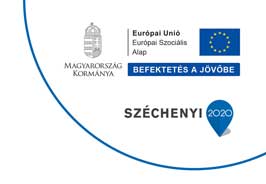Dear Visitor,
The companies of our Group, with around 9 thousand employees, supply orders from customers and meet market demand at 122 manufacturing sites across Hungary. About 83% of our employees are workers with reduced work capacity, which entails increased precision in their work, focused attention and in some cases increased tolerance of monotony. For us, there is no such thing as ‘compromise’ when it comes to meeting delivery deadlines or accuracy!
We are also supplying partners of a variety of domestic and international brands in multiple fields of manufacturing, assembly and packaging. Through our manufacturing capacities and nationwide coverage, there are no impossible challenges for us in light industrial activities requiring considerable technical/professional expertise or simpler but more labour-intensive capacities.
Our customers take their fair share of social responsibility regarding people with disabilities; and at the same time, they are supplied with products and services with which they will be fully satisfied.
In addition to our core operations, our Group operates extensive social responsibility programmes aimed, on the one hand, at helping our employees, and, on the other hand, at representing the cause of disabled people, raising awareness in society concerning workers with reduced work capacity.
Just give us a chance to prove that even workers with reduced work capacity can carry out at least as valuable work as anybody else.
Our values
The new management of KÉZMŰ Közhasznú Nonprofit Kft. (KÉZMŰ Non-Profit, Public Benefit Purpose Ltd.) wishes to operate the organisation on the basis of shared values and corporate goals enabling sustainable and economical operations. We are committed to operating the Company with the aim of employing workers with reduced work capacity, by creating its material and personal requisites.
Our organisational values are based on the following 6 basic values:
Our key milestones
The employment of people with disabilities is not a new idea in Hungary; as early as in 1826 a programme was launched in Pest with the aim of “providing help and ease for all unfortunate sons of our country for all times to come”. The institutions concerned took care of the blind, while later on, they provided them with education and vocational training. Similar efforts were made to help the deaf and hard of hearing. In the 1940s, tailors, seamstresses, producers of leather goods, carpet makers and other artisans were still working independently.
1950s
Companies employing blind and visually impaired people were turned into independent county-based companies with gradually widened scopes of operations. District artisan workers cooperatives called “Kerületi KÉZMŰ” were established.
1953.
Fővárosi Kézműipari Vállalat – the Council integrated the artisans’ cooperatives operating in a structure by districts in Budapest and elsewhere in Hungary in a single company.
1972.
Various divisions were organised in factory units, establishing the companies and units such as Ruhaipari, Divatáru és Finom készruházati (clothing, fashion and exclusive apparel), Fonal és Textilfeldolgozó (yarn and textile processing), Bőr-, Műbőr- és Műanyag (leather, artificial leather and plastic processing), Vegyesipari (other crafts and trades), Tömegcikkipari (other mass-produced articles), the payroll unit of Chief Accountancy and the Central Transport Department.
1978.
With its more than ten thousand strong workforce KÉZMŰ, a large domestic company, manufactured products worth over HUF 1.5 billion, with an export value exceeding HUF 600 million. We earned the “Excellent Company” prize. 80% of the total workforce are employees with reduced work capacity.
1991.
A nation-wide network of outworkers was terminated and a new office building opened on Csömöri road in Budapest.
2006.
Jeanette Ruhaipari Vállalat, a manufacturer of clothing items, merged back into KÉZMŰ. KÉZMŰ was transformed into a private company limited by shares. The seven factory units were integrated and formed four units: Vegyes, a Winner, Jeanette and Bőrdíszmű.
2009.
Transformation into the legal form ‘non-profit company’.
2012.
Launch of the priority project TÁMOP-5.3.8, starting technical, IT and mental hygiene trainings with the involvement of 27 sites. By winning the tender for MOB (the Hungarian Olympic Committee) uniforms, KÉZMŰ manufactures the uniforms for the Hungarian Olympics team.
2013.
The Rehabilitation Accreditation certificate was obtained. Conversion into a Protected Workshop.
2016.
Integrated management with ERFO and FŐKEFE.
2020.
Setting up a new regional production structure, group-level optimisation, creation of an integrated corporate governance system.







